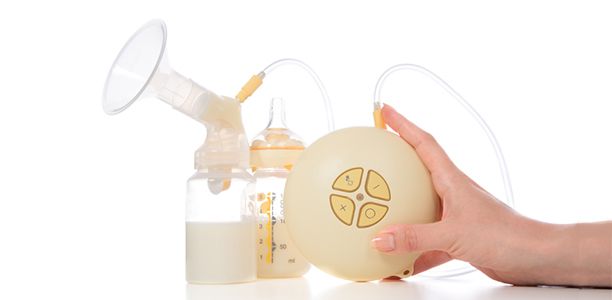Breastfeeding is healthy for baby and for Mum. It has a positive impact on childhood obesity, infections and allergies, is linked to a lower likelihood of mothers getting ovarian or breast cancers later in life and to a more positive maternal-child relationship. Research from the University of Houston Department of Psychology finds, however, there are obstacles to mom and baby receiving the full benefits.
“We know here in the U.S. women generally go back to work within 12 weeks,” said Christiane Spitzmueller, associate professor of industrial organisational psychology. “For them to continue to manage exclusive breastfeeding at work they have to take breaks, and that’s where many women quit.”
The American Academy of Pediatrics recommends exclusive breastfeeding for six months and continuation of breastfeeding for 12 months or longer. The Affordable Care Act requires employers to provide time and a space for mothers to express milk.
Using a data set from the Centers for Disease Control, Spitzmueller and her team examined survey responses from 859 women returning to work to see if their work experiences were predictors of their breastfeeding decisions. They measured moms’ intention to breastfeed their child, the workplace climate and the presence of ‘instrumental breastfeeding support,” like sufficient break times, lactating rooms and refrigerators to store expressed breastmilk.
Of the 859, just over 300 women managed to continue breastfeeding for a year. Only seven continued breastfeeding exclusively for the recommended six months.
“Things like having a refrigerator to store expressed breastmilk or having space to pump breastmilk are really helpful, but in our study the support for those wasn’t as we might expect,” she said. “It was really the more intricate, social interactions, like listening to other people’s jokes or that they’re more committed to pumping during the day than to working that had a stronger impact on women’s decision to continue, especially exclusive breastfeeding, than these official support mechanisms.”
Additionally, Spitzmueller says women with a supportive supervisor were eight times more likely to continue exclusive breastfeeding than women with a non-supportive supervisor. The study recommends more training for supervisors that indicates the health benefits to their new-mom employees, and illustrates how breastfeeding is a health-related work behaviour that could help retain good employees.
“When women are at work they’re perceived as employees and their career identity is the priority, rather than their identity as a woman and as a mother. When a woman needs to pump breast milk, that immediately emphasises her maternal and non-workplace role as over her career role,” Spitzmueller said. “Workplaces have become fairer, but when there are competing life demands I don’t think we’ve been as successful as we could be or should be.”
(Source: University of Houston)










